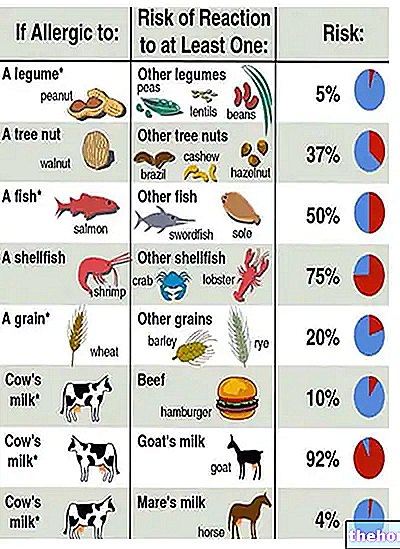Strictly speaking, celiac disease is not a disease, but a simple condition which, in order to manifest itself, requires the simultaneous presence of a genetic predisposition and the consumption of foods containing gluten.
in fact, it affects many organs and tissues causing numerous negative consequences.For this reason, celiac disease is clinically classified into different types depending on the symptoms it assumes.
In many cases, it correlates with very mild symptoms so that the patient lives with these problems for years without actually realizing the anomaly (silent celiac disease).
Among the symptoms most frequently related to this disease we remember:
- Deficiency anemia of minerals (iron) or vitamins (vitamin B12, folic acid);
- Premature osteoporosis due to reduced calcium absorption and vitamin D deficiency which can lead in the most serious cases to bone fractures following minor trauma;
- Oral aphthosis (the phenomenon that leads to the formation of small roundish and annoying plaques on the oral mucosa) and more generally herpetiform dermatitis (a particular bullous lesion of the skin);
- Headaches and general malaise associated with weakness;
- Psychological problems such as anxiety, irritability and depression;
- Abdominal bloating, colitis, intermittent diarrhea, flatulence, cramps;
- Increase in transaminases, particular enzymes of hepatic origin.
Complications of Celiac Disease
If it is not diagnosed in time and adequately treated, celiac disease can lead to very serious phenomena especially at a young age (typical celiac disease).
The progressive destruction of the intestinal villi, in fact, leads to important and sometimes irreversible diseases such as infertility, repeated miscarriages, growth arrest, hypothyroidism, alopecia, diabetes and intestinal tumors.
Furthermore, celiac disease can be associated with other autoimmune diseases such as rhemautoid arthritis.
In addition to the end of weaning, celiac disease can arise or worsen even in adulthood due to significant physical or psychological stress (maternity, trauma and accidents, intestinal infections, surgical operations).
Gluten intolerance can be accompanied by further food allergies or intolerances such as lactose; in these cases, the list of permitted foods is further impoverished, creating many inconveniences for the patient.
, a simple blood test can help diagnose.
If the blood test is positive, only the biopsy of the intestinal epithelium will be able to confirm the actual presence of the pathology.
This diagnostic technique is based on taking a small tissue sample by inserting a thin and long tube orally.
However, the simplest way to diagnose celiac disease is to stop taking gluten-containing foods by checking whether or not there is a regression of symptoms.




























